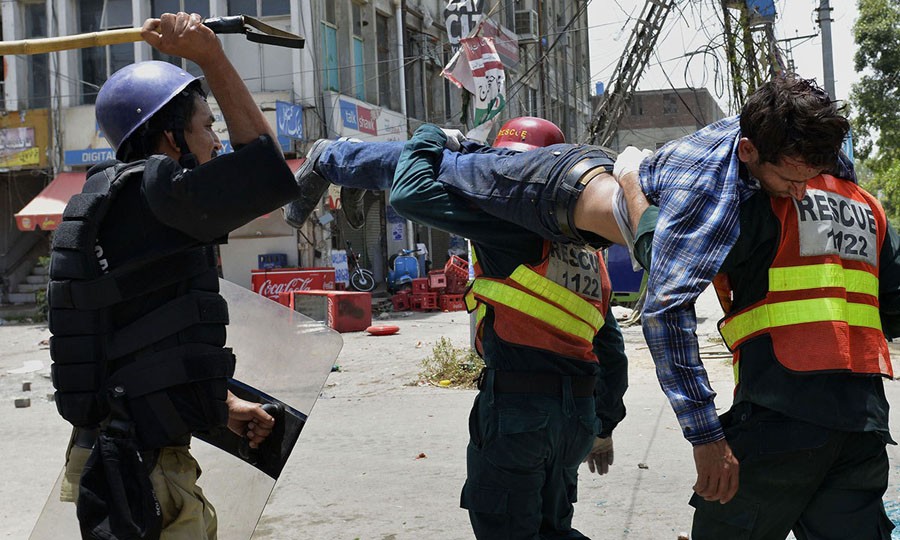
The courts, police and local government system all need to undergo structural changes

Time and again, sincere efforts for reviving local administrative structures in Pakistan have been taken hostage by misplaced and preconceived notions. Embarking on institutional reforms before removing such ideas has frustrated past efforts for administrative reforms -- this includes Bhutto’s civil service reforms and Musharraf’s devolution experiment.
It is, therefore, desirable that the present governance reform discourse in Pakistan -- spurred by Punjab Civil Administration Ordinance, 2016 -- should not fall victim to misplaced dogmas.
Before we can succeed in implementing administrative reforms, we need to deal with the concept of "colonial legacy". The plain truth is that the entire edifice of administrative structures in Pakistan is part and parcel of colonial legacy. The Royal Letters Patent of 1919 created the High Court of Judicature in Lahore; the detailed working of police officers and the executive magistracy flows from the colonial-era CrPC; all procedural laws including Civil Procedure Code and the Pakistan Penal Code are rooted in colonial times. If you look beyond our colonial legacy you will only be welcomed by the likes of Maharaja Kharak Singh or Muhammad Shah Rangila.
The point one is trying to make is that institutions should be tweaked as per public needs and performance, instead of the selective application of their perceived nexus with colonial legacy.
Let’s first address the administrative issues of our judicial system. The fact of the matter is that subordinate courts are overly burdened with litigation, and executive magistracy can alleviate pressure from subordinate judiciary. The Law Reforms Bill 1996 assigned only chapter proceedings, preventive and local/special laws to executive magistracy. Why burden judicial magistrates with this huge caseload of petty litigation when these functions can be efficiently performed by executive magistrates?
Next, talking purely on the basis of performance, civil servants joining the judiciary have given us some of the most respected names in judicial fraternity. Justice Cornelius, Justice M.R. Kayani, Justice Shafi-Ur-Rehman, Justice Saad Saood Jan, Justice Samdani -- all impeccable lordships were initially CSP (read DMG/PAS ) officers. The decision to revive the executive magistracy should hence be made on the basis of past experience and genuine constraints faced by lower courts and litigants, rather than touting the stale mantra of "colonial legacy".
Policing is another area where fictional demons are employed to impede legitimate reform efforts. The moment one talks of applying checks and balances on police force, you are reminded about the dangerous designs of those trying to revive colonial controls over police. What is left unsaid is that the supervision of District Magistrate was part and parcel of the Police Act, 1870s and not a creation of land revenue laws which created the office of Deputy Commissioner. With the promulgation of Police Order 2002, all avenues of police supervision by District Administration are closed forever.
Further confusion arises because people are unaware about the cardinal pillars of the Police Order 2002 including functional specialisation, political insulation, external oversight and citizen liaison, these have been totally annihilated by police leadership. Public Safety Commissions (political insulation), separation of watch and ward from investigation (functional specialisation), external oversight (Police Complaint Authority) or citizen friendly policing (CPLCs) were not frustrated by any group of civil servants or politicians. The responsibility for the absence or weaknesses of these outfits lies squarely on the police.
The last fiction which frustrates administrative reforms pertains to the perceived weaknesses in elected local governments. One is made to believe that elected Nazims only plunder; that there are huge capacity gaps in elected local governments; that biradari politics is their fate; and that babus are more trust-worthy than elected local leadership. These fabrications are employed by politicians and bureaucrats to deny legitimate roles and rights to elected local leaders.
Cobbling a just and optimally performing district governance system for Pakistani citizens should not be an impossible task if only we are ready to drop these misconceptions. We need the solid edifice of district administration for ensuring unbiased regulation and enforcing the writ of government. But more than that, district administrations should be geared towards achieving social development and citizen empowerment outcomes -- something that babus spurn as NGO work.
While district administrations should be answerable to provincial government for regulatory functions, public functionaries must be made answerable to locally elected political leadership in planning, direction-setting and service delivery matters. Contriving arrangements such as the Health and Education Authorities in Punjab or provincialising these sectors such as in Balochistan or Sindh are tantamount to denying local polity their legitimate role in key human development arenas.
We need independent and representative local governments with a comprehensive mandate for local development and social sector service delivery; with authority to plan and allocate resources for area development. But in the same vein, we must learn from the failure of LGO 2001, when regulatory and enforcement roles of government were placed under local politicos who played havoc with citizen rights and entitlements.
The police must be granted total operational autonomy for investigative functions. There should be no backdoor for home departments or DC on this count. Public Safety Commissions, Police Complaint Authority, Independent Investigation and CPLCs need to function freely.
Civil servants must understand that local politicians alone -- with capacity gaps and biradari nexus -- are destined to take the driving seat in districts. The police need to appreciate that they are an enforcement arm of the state, subject to meaningful oversight and institutional restraints.
Lastly, provincial governments must refrain from scuttling local level political activism for the larger health of political culture in the country. Local governments alone can guarantee continuity and strengthening of political processes by infusing fresh blood in ossified political party structures and systems.